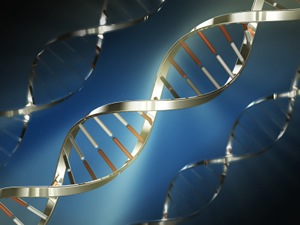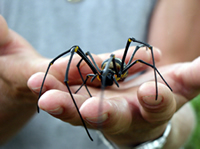
What is Biotechnology?
Biotechnology broadly defined is using living organisms to solve problems or to make products.
From this definition, one could say that biotechnology has been practiced by human society for a long time, in such activities as baking bread, brewing, breeding crops or animals.
Today, it is still biotechnology, but scientists have a better understanding if cells, biological molecules, proteins, DNA and other building blocks of life. Scientists are now using nanotechnology to manipulate life at the atomic level.
The National Center for Biotechnology Information web site has plain language introductions to bioinformatics, genome mapping, molecular modeling, SNPs, ESTs, microarray technology, molecular genetics, pharmacogenomics, and phylogenetics.
What Can Biotechnology Do?
Here are some of the current and predicted capabilities of biotechnology.
- End of world hunger, global starvation
- Foods that are better for you and last longer
- Disease and pest resistant crops
- Accurate delivery of precise amounts of drugs, e.g., targeting cancer cells without damaging nearby healthy cells
- Regenerative medicine, replacement organs
- Designer organisms
- Slowing or stopping aging
- Biological computing, wearable computers
- Biological fabrication of clothing, plastics, and building materials
- Environmentally friendly manufacturing processes that minimize waste
- Microbial cleansers
- Ultra-strength, lightweight materials

A Clone Again, Unnaturally
Cloning scares me. Then again, so do spiders. What I found after my brief research for this article, is that there are different types of cloning. And just like spiders, some types of cloning I should be wary of, but many may be considered beneficial.

Agricultural Biotechnology
Agricultural biotechnology is a broad range of tools--including traditional breeding and genetic engineering, that are used to modify plants or animals.
Regenerative Medicine
Researchers and medical doctors of today hope to make the legendary concept of regeneration into reality by developing therapies to restore lost, damaged, or aging cells and tissues in the human body.
Regenerative Medicine
Francis S. Collins, M.D., Ph.D., is the director of the National Human Genome Research Institute at the National Institutes of Health. He led the successful effort to complete the Human Genome Project
The Human Genome Project refers to the international effort to discover all the human genes and make them accessible for further biological study. Many consider this project to be the most significant scientific undertaking of our time. The ultimate goal is to improve human health. Human Genome Project
Types of Genetic Engineering
Genetic engineering is when humans manipulate an organism's genetic material in a way that does not occur under natural conditions.
- Natural Selection - Nature's own genetic engineering
- Selective Breeding - Altering the course of natural selection
- Genetic Manipulation - Altering the genes of cells and organisms
- Genetic Engineering - Creating new genes, proteins and organisms
Here are some of the drawbacks to genetic engineering:
- It may prove harmful for the natural plants, animals or environment.
- Fixing a problem, could cause a problem, when you don't know the whole picture.
- GMOs and Nature might combine to make super weeds or super pests.
- Gene manipulation can have unpredictable side effects.
- Genetic engineering can affect diversity.
- Gene therapy is not affordable for everyone.
Find the perfect mate based on your DNA
The basic theory behind DNA dating is that nature makes us more attracted to people with different immune systems. Chemically compatible couples are claimed to love each other's scent, enjoy a better sex life, have healthier children and be less likely to cheat.
BioHackers
Amateur bioengineers are trying to create new forms of life. Without proper safety procedures in place, home biotech operations could increase the risk of disease outbreaks or environmental catastrophes. They could also stumble on a cure for cancer.
Synthetic Life
Scientists have created life in the laboratory. They designed the DNA on a computer and using four bottles of chemicals, made it come alive. Synthetic life forms could lead to new biofuels, vaccines and organisms that would help clean up our environmental messes. Real good stuff. It could also lead to man-made man or the ultimate bioweapon. Real scary stuff.
Genetic discrimination
Genetic discrimination occurs if people are treated unfairly because of differences in their DNA that increase their chances of getting a certain disease. For example, a health insurer might refuse to give coverage to a woman who has a DNA difference that raises her odds of getting breast cancer. Employers also could use DNA information to decide whether to hire or fire workers.
Designer Babies
Latest research is making designer babies a reality now, using technology developed originally for use in animals. Using embryo screening technology to choose what type of baby you want. In the future, embryos may not only be screened, but modified.
No comments:
Post a Comment